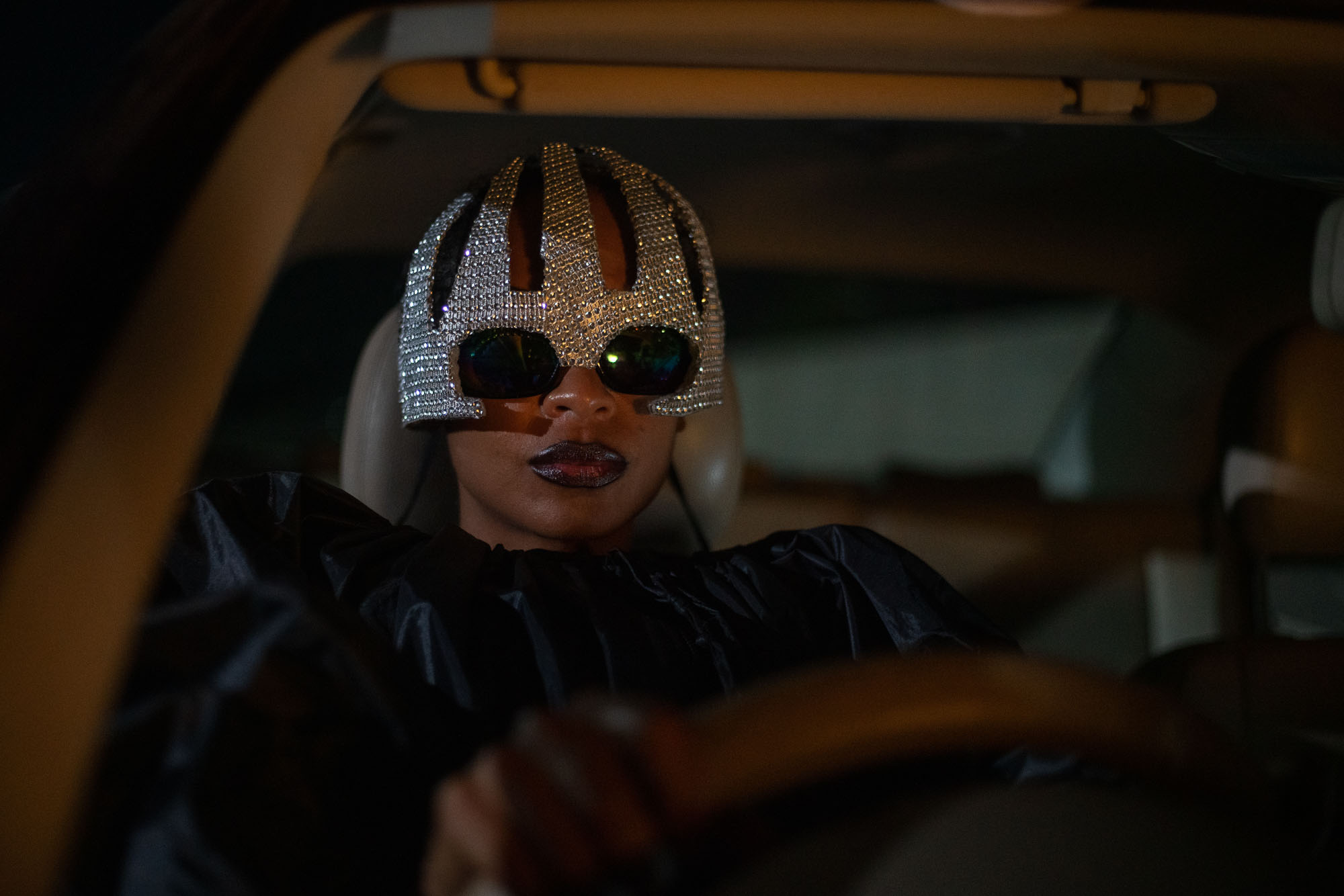Late at night, a woman sporting full Missy Elliott garb is driving alone on an empty street with soft funk music playing through the speakers. Something in the middle of the road prompts her to come to a full stop. She stares at the corpse, not fearful, but indifferent. As she returns to the car, she looks back and sees her teenage self staring at the man, too. The man in question is the woman’s Uncle Fred, a man whose death begins to unravel a generational conspiracy of familial silence in the wake of unspeakable abuse.
On Becoming a Guinea Fowl is writer-director Rungano Nyoni’s sophomore feature, an impressive follow up to 2017’s I Am Not A Witch. Set in an affluent Zambian suburb, the film follows Shula (Susan Chardy in her screen debut) during her uncle’shighly involved funereal. As the film progresses, Shula learns she wasn’t the only one abused; many of her cousins were too. It’s an almost-farcical examination of the patriarchal structures inherent to familial obligations. The women who were most hurt by Fred are the ones who must perform grief the loudest.
While On Becoming a Guinea Fowl features many excellent performances, Susan Chardy’s portrayal of Shula is uniquely enthralling. In a particularly affecting scene, Shula’s teenaged cousin Bupe’s suicide attempt as a result of the abuse. Shula is told by her aunt to say Bupe has malaria. There’s an almost imperceptible depth to Chardy’s reaction—when she’s told “Don’t think about it, don’t talk about it”—a far-away look of adolescent regression. She quickly composes herself so that all we get is a brief window to the deep despair and indignation desperate to claw its way out.
Like I Am Not A Witch, Rungano Nyoni approaches the story with a documentarian’s sensibilities; many of the shots are static and medium or medium-long, maintaining a palpable distance between the subjects and the audience. Some of the shots are even ridiculous in their construction: when Shula confesses the abuse she suffered to her father in an expansive library, the camera looks on from on the other side of the atrium, prodding an uncomfortable sense of voyeurism in such a private moment. The stylistic choices lends a chronic unease to On Becoming a Guinea Fowl, an out-of-placeness that evokes the alienation that comes as a result of trauma.
In stories of sexual abuse, there’s an inherent, primordial desire to see an abuser punished. In On Becoming a Guinea Fowl, the abuser has already been punished—he’s dead. There’s no grand moment of catharsis for Shula and her cousins, no dramatic scene of confrontation; all they can do is pick up the pieces.

